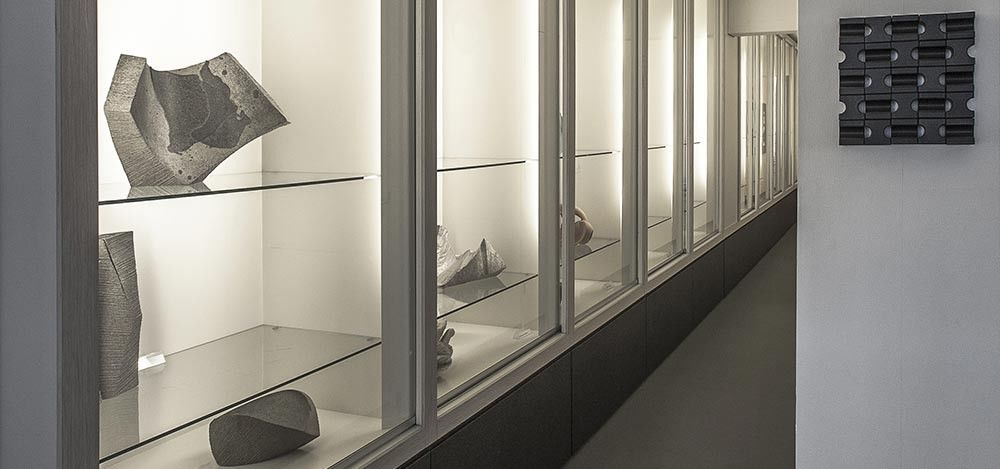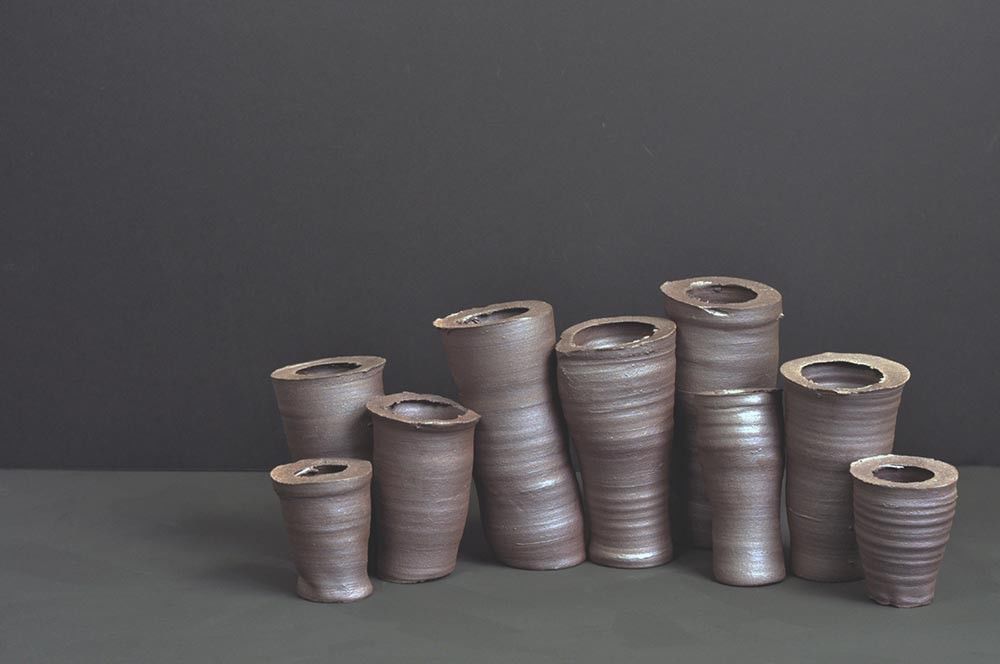Gallery Carla Koch: 10 questions with the owner Carla Koch
Dutch ceramic and glass galleries have remarkable endurance. One of the most renowned galleries dedicated to these disciplines is Gallery Carla Koch. The gallery displays objects that mostly refer to the container shape, but which at the same time set themselves free from their function.
As such, they move within the interesting no man's land between art and design. The gallery, which has been running succesfully for over 20 years, and is present at serveral Dutch art fairs. The perfect moment to get to know Carla a bit better, and to find out what's going on in the world of glass and ceramics!
How did you get your own gallery?
It started while I was working for the company Indoor. They held office at the Paulus Potterstraat and were the 70’s and 80’s, renowned for importing special lighting that wasn’t well-known to the public. They were experts in lighting art in large exhibition spaces. They imported rails and spots, which they demontrated in their own gallery how to light art. W
hen the company came up with the idea to make the gallery profitable I was made in charge of policy. It became a huge success! Still they decided in 1995 to change directions. This was the moment I decided to take a leap of faith and open my own gallery.
How did that process go?
It was actually rather frightening! I had always worked on the payroll and suddenly I had to do everything by myself. Still it was my life-long dream to have my own art gallery.
That's why I pushed to the limit and rented a space on the Prinsengracht. It was an enormous space of 135m2. A big advantage was that next to organising exhibitions, I could also showcase a large collection of stock. The gallery became a great success and I was able to build up a portfolio of international clients.
What, in your opinion, lead to this success?
I think it was the unique combination of specialising in glass and ceramics. High-quality ceramics are quite unique in The Netherlands. On top of that, I had my own way of curating art in this discipline.
Together wih Gallery De Witte Voet, which at that time already existed for 15 years, I was one of few actively working with ceramics.
De Witte Voet also distinguished itself by curating installations and focussing on the sculpting side of ceramics. Next to this, I have always been supported by several curators and museums. These were contacts I made during my time at Indoor and with whom I’d built up a good relationship. Galleries that sell to museums are often quickly regarded as high-quality.
Last but not least, in 1999, a large conference was held dedicated to ceramics. This was a great opportunity for me and resulted in a large American client-base. Unfortunately, after 9/11, it decreased significantly.
How did you notice that?
The events surrounding 9/11 were a big hit to US confidence.
Before, the most well-off Americans would fly to Amsterdam to buy a single piece of art. Those things simply don’t happen anymore. Even in The Netherlands, from 2006 onwards, business became slow.
The gallery had existed for 11 years, and where I used to be busy from Friday afternoon until the end of the weekend I was now spending hours in the gallery without a single soul stepping through the door. That's when I decided to close the gallery on the Prinsengracht and start working from my home, recieving visits only on appointment.
Doesn’t that also have to do with the sensitivity to trends in the art world?
I find that difficult to say. In glass and ceramics preference isn’t as subjected to changing trends as for example painting is. You really can’t tell. There were art fairs where I was invited for years in a row until suddenly glass and ceramics were no longer considered ‘art’.
Can you describe which styles are currently in fashion in ceramics?
At the moment figurative ceramics is quite popular. There’s a lot of experimenting being done in the field of ceramics. I read a lot of magazines on this matter and see the craziest objects pass by.
Are you an artist yourself?
No, please! I very mych dislike amateurism. In my opinion, unless you’re work is above average, you can stop trying. I’m ok with therapeutic pottery, but that’s where I draw the line.
What is it you always look for in ceramics?
I’ve always been interested in shapes that come from tradition but go just a bit further. The work of Wouter Dam is a good example of that. His work, in my opinion, is very progressive; he turns traditionals jars on the wheel, cuts them up and shapes it into new objects. I think that’s fantastic.
What advice would you give someone who’s about to buy their first work of art?
Look around at what you like and don’t be fooled by what other people say. See it as a natural process. It can happen that you buy something now, that you won’t like in a few years. It’s part of the game. Don’t think you’re stupid and let your emotions guide you.
How do you see the future?
I’m convinced that the idea of a physical gallery, as we know it, is over. People don’t buy art at galleries anymore, there are now other ways people get tempted to buy art. New technology obviously plays a big part in this.
I have always tried to go along with new streams, and was one of the first in 2007 to have a very extensive website. How this trend will continue I don’t know yet, which might also be a reason I joined this online platform. I’m not going in a new direction by myself, I’d like to join new initiatives with which I can speak to a whole new audience.


